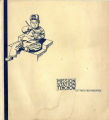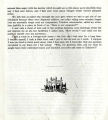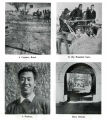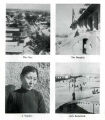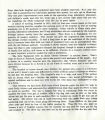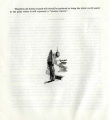| OCR Text |
Show were asked, hungry children were hanging to her clothes, men wanted her advice on what to do; and when the long day of planning was over, there was still no food and no fire, but hope. Luckily the organization worked perfectly in spite of hundreds of difficulties. Millet, straw mats, and wood arrived in time; and before the second day was over each refugee had received a bowl of warm food. To conquer the worst enemy before he was in force, vaccinations were given; and before many days the worst had passed for these sufferers. There was no hope that the refugees could return to their villages in the next few months; so plans were made for little schools, courses for men and women, and small workshops where necessary things could be produced. And it was not long before these plans were carried out. It is impossible to tell more about the various tasks of an evangelistic worker, despite my great desire to do so, because my plan to accompany one of them on an all-round trip has proved impossible to carry out as yet. But even if I had had the opportunity to observe their work, I couldn't tell about it as vividly as Miss Lucia Lyons does. Below I quote Miss Lyons. "The little market town where we leave the bus has a desolate look compared to its care-free activity of a few years ago, but within ten minutes we are walking along a country road with people busy in the harvest fields on both sides, calling out their friendly greetings as we pass. Something greater than armies and dictators is here - ,a patient force that is close kin to life itself. And when we reach the village that was for so many years the center of our work we find everyone, old and young, deep in plans for the harvest festival. Bags full'of corn stand ready to be carried into the church, girls are rehearsing a little play, and women coming in with bunches of sweet potatoes or carrots. By Sunday eleven or, twelve bushels of grain have been brought in. These are truly a thanks-offering, for instead of the droughts, floods and insect plagues of a year ago, there is at last food enough to eat, and in this knowledge other fears and anxieties are forgotten. God, they feel, is to be trusted. After the service we get on a big farm cart with a family who are returning to their village seven miles away. In spite of the slow pace of the ox and mule time passes quickly, for we are listening to stories of simple trust and of preservation from dangers of fire and sword, when life itself seemed so precious that the loss of houses and possessions was not even to be remembered. In their village everyone is busy from dawn to dark on the threshing floor, but Mrs. Chia, my Chinese helper who is with me, finds her place at once. We talk to the women while we all shell corn; now the subject is the importance of covering food against flies to prevent the spread of cholera; again it is instructions about boiling scissors and dressings when the new baby is born - the last one in the same family having died |

